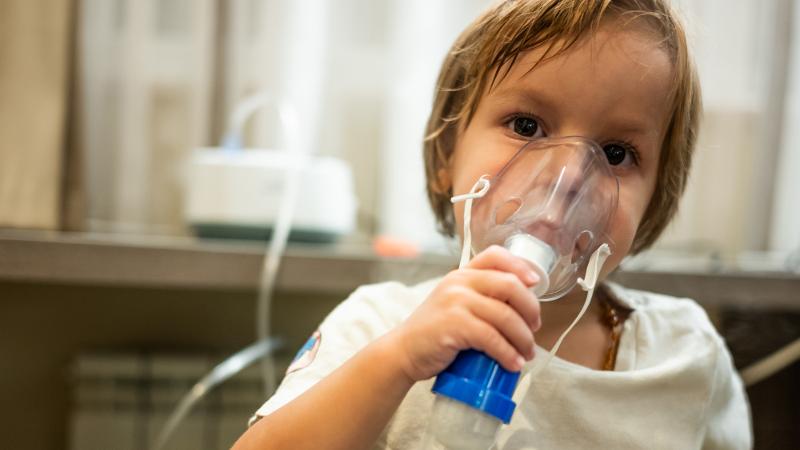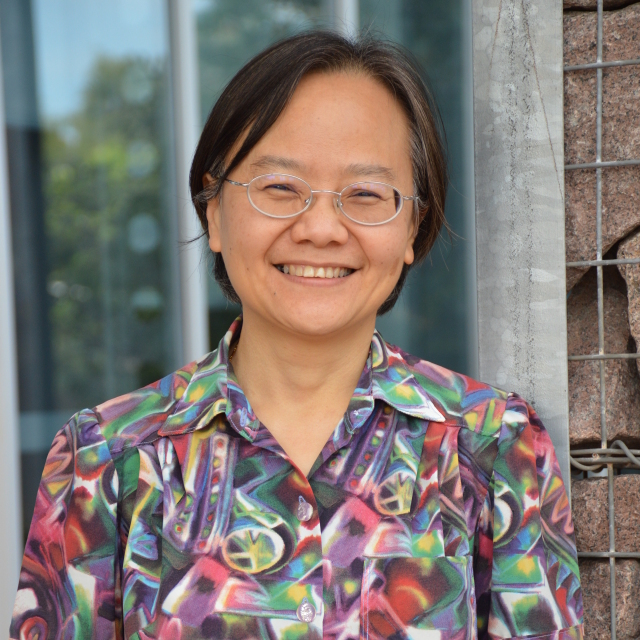
QUT will lead a $1.6 million Australian-UK world-first project aimed at preventing wheeze in preschool children and potentially asthma in later childhood by using an orally administered bacteria lysate to boost immune systems.
Acute bronchiolitis is a common viral lower respiratory tract infection that causes inflammation of the small airways in infants aged less than 12-months.
Bronchiolitis is the leading cause of hospitalisation in Australian infants, resulting in about 13,500 admissions each year. In the UK, more than 30,000 infants are hospitalised with the condition.

“The most severe cases can be triggered by the common cold—human rhinovirus and respiratory syncytial virus,” said Professor Anne Chang, lead investigator from the QUT School of Public Health & Social Work, and also program lead for cough, asthma and airways research at the Australian Centre for Health Services Innovation (AusHSI).
“Preventing the development of wheeze in preschool children would produce major health benefits, but to date no therapies have proved to be effective.
“Infants hospitalised with bronchiolitis are at much higher risk of developing virally-triggered preschool wheeze that will continue as childhood asthma, and potentially adult disease.
“We are partnering with leaders in the United Kingdom to examine whether boosting the immune system by giving granules of lysed dead bacteria can prevent future childhood asthma.”
Stopping post-bronchiolitis wheeze could prevent up to 5400 new asthma cases per year in children in Australia and 12,000 cases in the UK, according to Professor Chang.
She said giving infants immune modulators like bacteria lysates could re-programme the immune system to prevent future wheeze, asthma or severe acute respiratory infections, but evidence from prior studies had been limited by study size and duration, and age at intervention.
Over the next five years, researchers will give more than 900 infants oral Broncho Vaxom (BV), a lysate of respiratory bacteria, to test if it reduces the incidence of doctor-diagnosed wheeze 18-24 months post-hospitalisation for bronchiolitis.
“BV is currently unavailable in Australia and there are no interventions preventing wheeze or asthma in children with bronchiolitis because there is a lack of evidence for effective interventions,” Professor Chang said.
“Infants enrolled in our trial will have an opportunity to access BV for the first time in Australia for this indication, and our study’s results will provide evidence of whether the intervention is effective.
“Some of these health conditions can lead to permanent damage, which illustrates the importance of providing robust data for altering medication policy in the public health system.
“If our trial is successful, BV could become a standard treatment available for those at risk of preschool wheeze and asthma.”
The trial will be the first of its kind to estimate the incremental cost-effectiveness of using BV for wheeze and asthma prevention.
“Cost effectiveness findings, including the impact of the intervention on future events like hospitalisation are important for informing health policy and will likely support the uptake of BV in Australia,” Professor Chang said.
Funding is through the Medical Research Future Fund (MRFF) Clinical Trials Activity – International Clinical Trials Collaborations grant that supports Australian involvement in international collaborative investigator-initiated clinical trials.
As part of the project, the grant will also support the Australian arm of a long-term epidemiology study to understand how BV works, and explore existing data linking the airway to gut microbiota and cytokines associated with asthma development post-bronchiolitis.
“This study should determine whether BV therapy alters systemic T-cell immunity and increases gut and upper airway microbiota diversity, thus increasing pathogen colonisation resistance and enhancing immune-regulation,” Professor Chang said.
“Understanding the mechanisms of BV will provide new insights into primary prevention and could lead to future more refined interventions like those targeting cellular functions,” she said.
The project is due to start in September 2021, with more than 900 participants to be recruited across Australia and the UK.
Chief Investigators
- Professor Anne Chang, QUT
- Professor Steven McPhail, QUT
- Professor Keith Grimwood, Griffith University
- Professor Allan Cripps, Griffith University
- Dr Gabrielle McCallum, Menzies School of Health Research
- Professor Jonathan Grigg, Queen Mary University of London
- Dr Danielle Wurzel, The Royal Children’s Hospital Melbourne
- Professor Hiran Selvadurai, Children’s Hospital at Westmead
- Professor Debby Bogaert, University of Edinburgh
Associate Investigators
- Associate Professor Julie Marchant, QUT
- Dr Stephanie Yerkovich, QUT
- Professor Peter Morris, Menzies School of Health Research
- Dr Robyn Marsh, Menzies School of Health Research
Media contacts:
Novella Moncrieff, 07 3138 1150 or novella.moncrieff@qut.edu.au
After hours: Rose Trapnell, 0407 585 901 or media@qut.edu.au




